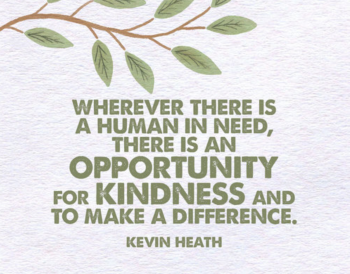
First of all, I wanted to wish a Happy Easter and Passover to those celebrating!
We just finished our first week of online learning. A few of my students logged on to participate in our first gratitude prompt and complete their first math activity. I will also be calling families next week to check in on everyone. My main goal is to see how they are doing and to reassure them that the main focus continues to be their health and wellness. In terms of learning, I will be posting choice boards on a weekly or bi-weekly basis. This will include (but not limited to) math and science activities; the math is based on concepts related to the curriculum but I am also going to continue to include games, puzzles, and brain teasers to keep the atmosphere fun and light and the science will consist of short inquiry assignments broken into small steps, video, case studies, and trivia. They will be encouraged to complete these activities as they see fit for which I will provide them ongoing descriptive feedback. (I will be providing sample choice boards in my next post).
Many educators are doing a fantastic job of providing engaging and differentiated activities, communicating with families, and ensuring the well-being of their students; this should be the main focus going forward. The one thing we need to continue to be mindful of is that we can not dictate what our students are doing at home. Work and activities can be assigned but there shouldn’t be any expectations in terms of completion dates and deadlines. In a nutshell, it’s all optional as the work can not and should not be graded due to the significant equity issues. (https://bit.ly/2xbkzEx).
During this challenging time, I keep revisiting one word – “humanity”. How are we ensuring we are focusing on the humanity aspect during this difficult time, no matter who we are?
I did hear from one parent (via social media) and what she told me was disheartening. She told me her son’s teacher assigned work, which was due at the end of the week. When this mom told the teacher it wouldn’t be possible, the teacher proceeded to tell the mom why each assignment was important and why it must be completed. The teacher even gave the parent a sample schedule to follow! I am presuming positive intentions and thinking that the teacher was trying to be helpful but clearly this upset the mom even further and added undue stress on her already stressful life.
This should make all of us pause and reflect. Reflect on our privilege. Some of our families have lost their jobs and are worried about how to pay the bills and how to feed their kids. We are very privileged to still have a job and receiving a steady paycheque. Many of us don’t have to worry about food or shelter. Privilege. Many are stressed about how to juggle working from home, taking care of their kids, and in some instances their elderly parents (as I am sure many of you are) and now there is the added component of home-schooling their children, which has added more stress to their lives. Therefore, it’s important that we continue to show compassion, empathy, and humanity (i.e., telling that mother that her son can do as much or as little as he wants depending on what is going on at home). I also think about those kids who are in homes where this is domestic abuse; that is heightened at this time with everyone being inside, especially those homes that have access to firearms. Learning and doing school work is the last thing on their mind (school was their safe place). Again, let’s pause and reflect on that. Many of us don’t have to worry about being in such a household. Privilege. I worry about those kids who might not have a (quiet) space in which to work because of the number of people in the house. I worry about those kids whose parents can’t support them due to language issues. I worry about those kids whose parents/guardians can’t support them due to their own educational background. Many of us don’t have to worry about that. Privilege. We have families who were living in poverty before this pandemic started and now it’s been exacerbated due to the impacts of COVID-19. Many of us don’t fall into this category. Privilege.
At this time, we need to be even more responsive to our students and do what is best for them. Being responsive doesn’t change but it does look different. The stress on everyone is unbelievable. Social emotional well being should be heightened at this time. What about some of our students who might be dealing with a family member or relative who might be afflicted with COVID-19 or even worse, died because of this deadly virus? (e.g., How many of our students are accessing Kids Help Phone?). How will they feel about the education system as a whole if we are focusing more on the learning than the social emotional component right now? How will they feel about us and ‘schooling’ (when we eventually return), if we are placing unrealistic academic expectations on them during this time? What does it say about our priorities? These are not normal times. We have moved to virtual learning due to a pandemic not due to pedagogical reasons. Right now, they need to know we care; how are we showing that? What are we doing? Are we listening to them and following their lead? Are we showing them our vulnerable side; that we are anxious, scared, and frustrated just like them? We are relating to our kids and their families on a human level. I don’t think there is anything wrong with this – again, humanity.
So again, lets please pause, reflect, and be responsive to the realities of our students and their families. We need to give them space and continue to demonstrate empathy, compassion, and humanity. One day at a time. Small steps.
Let’s get back to the “digital divide” and virtual learning for a minute. Let’s think about:
- Access/SES
- Environment/Support
- Motivation
Access/SES
We can throw all the technology at students we want and call it closing the digital divide or solving the digital equity issue, but it’s not even close. How is returning the technology at the end of all this, closing the divide? How is deactivating their wi-fi capabilities at the end of all this, closing the divide? What message is this sending to our students and their families? This is NOT how you solve this problem.
Environment/Support
We can throw all the technology at students we want and call it closing the digital divide or solving the digital equity issue, but what about the environment in which the student is working? Do they have a space in which to work? Do they have the materials they need (pencil, ruler, calculator, manipulatives, scissors, glue, paper, etc.)? Do they have parents/guardians who have the background knowledge to help? Do they have parents/guardians who have fluent English language skills? Do parents/guardians have the time to help (parents who work night shifts, parents who work multiple jobs, etc)?
Motivation
We can throw all the technology at students we want and call it closing the digital divide or solving the digital equity issue, but what about intrinsic motivation? How are we personalizing the learning? How are we individualizing the learning? How are we differentiating the learning to meet their needs? How are we integrating their passions? Interests? How are we ensuring equity in assessment in terms of feedback driving their learning versus assigning grades?
Kids who have all these resources will be fine (access to tech, bandwidth, parental support in terms of finances & education) and I am afraid the equity gap will just get wider if we are not proactive right now. Right now, we are using the short-term Band-Aid strategy and that is understandable because no one saw this pandemic coming. But it should be a wake up call for education systems everywhere that we need to place the focus on digital equity. These opportunity gaps (in addition to the engagement gap, I mentioned earlier) will continue to affect the achievement gap. How are we planning forward? Instead of having students return the technology at the end of this nightmare, how are we solving the bigger problem? As I said in my first blog post in this series, digital equity is an institutional commitment not a strategy.
We’ve been hearing the phrase, “We’re in this together.”, a lot lately and the more I think about it, the more I wonder about this phrase. Yes, we are all impacted by COVID-19, but we are impacted in different ways. As I mentioned earlier, some of us are better off than others. Some of us feel safe in our house while others may not feel safe because they have an abusive partner in the house. Some of us aren’t wanting for food, while others have lost their jobs and are worried about putting food on the table. Recently, Ellen Degeneres came under fire for her comments when she compared being quarantined to being in jail. Many, rightfully so, called her out on her privilege and ignorance because not only was she speaking from her ‘huge mansion’ but also because as a celebrity, she didn’t have to worry about access to essential services and resources due to her financial means. Some came out to defend her, saying she’s a comedian and that’s part of her job, which is true but this is a time where all celebrities need to acknowledge how lucky and privileged they really are; how good they really have it.
Another way I look at it, is in terms of sitting on a plane. My friend, Mike and I have been using the plane analogy when we’ve been discussing the many issues related to this pandemic and education. We might all be sitting on the same ‘pandemic’ plane but due to the privilege some of us hold and the inequities in the system, some of us are sitting comfortably in first class while others are fighting for legroom and space in economy class. And we all know there are factors that determine who is sitting in a particular part of the plane (race, SES, gender, etc). So, even if we’re not a celebrity with unlimited access to resources, some of us are still better off than others.
Normal depends on what we’re used to. Expectations are based on experiences. Let’s remind ourselves that our reality isn’t necessarily someone else’s reality. Let’s continue to show empathy, compassion, and most importantly, humanity.
H – humble
U – understanding
M – mindful
A – authentic
N – nurturing
I – inclusive
T – thoughtful
Y – you matter!!!
When we know better, we must do better. Let’s do better 🙂
